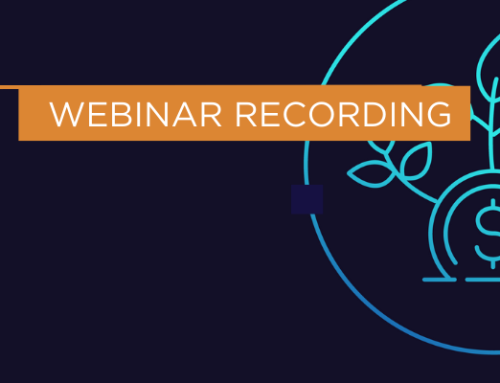Buckle up. Filing your 2021 taxes might be a bumpy ride. That’s why we’ve compiled information and tips to help you navigate the journey and maintain your sanity through it all this year.
We thought 2020 federal returns were messy. But if you’re like many Americans, you’re not feeling any less confused as you begin filing your 2021 returns.
In fact, in a letter recently issued to IRS Commissioner Chuck Rettig and Treasury Secretary Janet Yellen, lawmakers implored the agency to provide specific temporary relief to taxpayers during this very challenging tax season.
To put it mildly, the IRS is overwhelmed and communications have been confusing for a variety of reasons. In this article, you’ll find answers to the most common questions taxpayers are asking in today’s environment.
Blog Highlights:
FAQs about Delayed 2020 Returns & Impacts on 2021 Filings
Tax on 2021 Unemployment Benefits
Treatment of Advance Child Tax Credit
FAQs about Delayed 2020 Returns & Impacts on 2021 Filings
According to one report, tens of millions of taxpayers experienced delays with the processing of their 2020 returns.
The good news? The IRS is making progress.
The bad news? That progress doesn’t mean much to the approximately 6 million people who were still waiting for their returns to be processed in December 2021.
So what is the IRS doing about it? Let’s break it down:
- Internal shuffle to address the problem. From requiring overtime to redeploying employees to various functions in need, the IRS is taking action to improve processing.
- New technology. The IRS is leveraging new innovative technology that enables employees to process returns – even those filed with errors – much more efficiently.
- Notice suspension. To minimize confusion, the IRS has suspended the issuance of certain automated notices while they work through submitted returns and taxpayer correspondence. The IRS doesn’t have the authority to stop all notices, since some are legally required to be issued. Check here to see which notices have been suspended as of February 9.
- Free filing options. For any person or family with an adjusted gross income of $73,000 or less in 2021, the IRS is offering online tax preparation products at no charge.
Not surprisingly, questions abound from taxpayers who have still not settled their 2020 returns. We’ll address some of the most common questions below.
What if I receive a “missing return” notice from the IRS for my 2020 return?
According to the IRS, the notice is likely an error given the overwhelming number of unprocessed returns, and refiling is not the answer.
Instead, you have a couple of options:
- Call the IRS. Calling the IRS will absolutely involve wait time. And there’s no guarantee that you’ll find a resolution. The number of calls is outrageous as taxpayers are seeking information above and beyond unprocessed returns (e.g., advance child tax credit payments, stimulus payments, etc.).
- Check the IRS website for updates. As the agency grapples with communication delays, they will continue to update a page on the site called IRS Operations During COVID-19.
Is there a “good” time to call the IRS?
Unfortunately, not really.
But there are bad times to call and you should avoid those. According to the IRS, wait times are longer on Mondays and Tuesdays, on weekends, and in April as the filing deadline nears.
Should I file my 2021 return if my 2020 return hasn’t been processed?
The short answer is yes.
But be sure to file electronically, elect direct deposit if you’re expecting a refund, and take the time to ensure the return is correct.
The last thing you want is to trigger a manual review of the return, which will only add more processing time.
How can I file electronically if my 2020 return hasn’t been processed?
Since you’ll be unsure about what to enter as your prior-year AGI, most people should enter $0. If you used the non-filers tool to register for an advance child tax credit payment or the third stimulus payment, you should enter $1.
Tax on 2021 Unemployment Benefits
Although unemployment benefits were excused from taxation in 2020, benefits collected in 2021 are fully taxable.
For taxpayers who qualified for unemployment benefits in 2020, but didn’t receive those unemployment checks until 2021, unfortunately, those checks are fully taxable.
Collecting Stimulus Payments
You can still file 2020 and 2021 tax returns to obtain stimulus payments or any recovery rebate credits for which you qualify.
Visit GetYourRefund.org to claim any stimulus checks you have not received.
To get the first two stimulus payments, you’ll need to file a 2020 tax return. You can claim the third when filing your 2021 return.
Treatment of Advance Child Tax Credit
Under the American Rescue Plan of 2021, advance payments of up to half the 2021 Child Tax Credit (CTC) were sent to eligible taxpayers. Parents must report the child tax credit and any monthly payments received on their 2021 return.
According to the IRS, “If you received advance payments, you can claim the rest of the Child Tax Credit, if eligible, when you file your 2021 tax return.”
But the credit is causing additional confusion:
- Refund timing delay. To prevent fraudulent claims and identity theft, the law prohibits the IRS from issuing refunds before the middle of February. With the additional obstacles the IRS is facing, even the most timely of filers might not see a refund until early March.
- Payments not received. Taxpayers who believe themselves to be eligible but never received an advance payment should claim the CTC when filing their 2021 tax returns.
- Letter 6419. To quantify the amount of 2021 advance CTC payments issued and the number of qualified children, the IRS issued Letter 6419. Taxpayers should use the letter to properly calculate and claim the remaining CTC when filing the 2021 return. If the letter appears to be incorrect or you can’t find the letter, check the CTC Update Portal.





